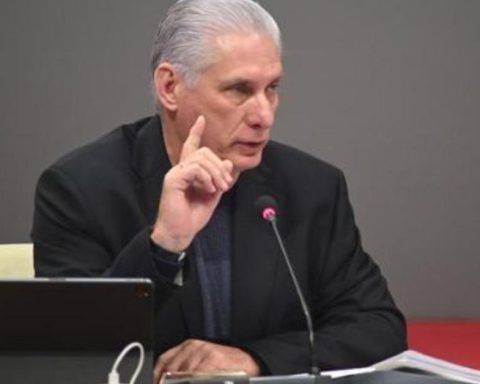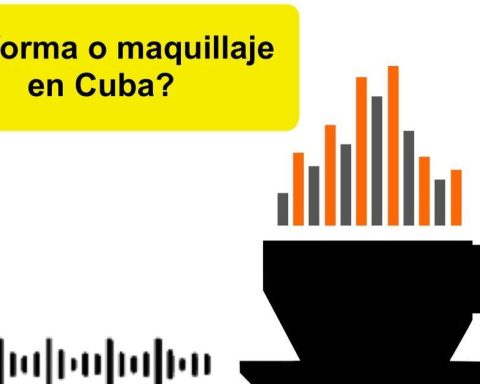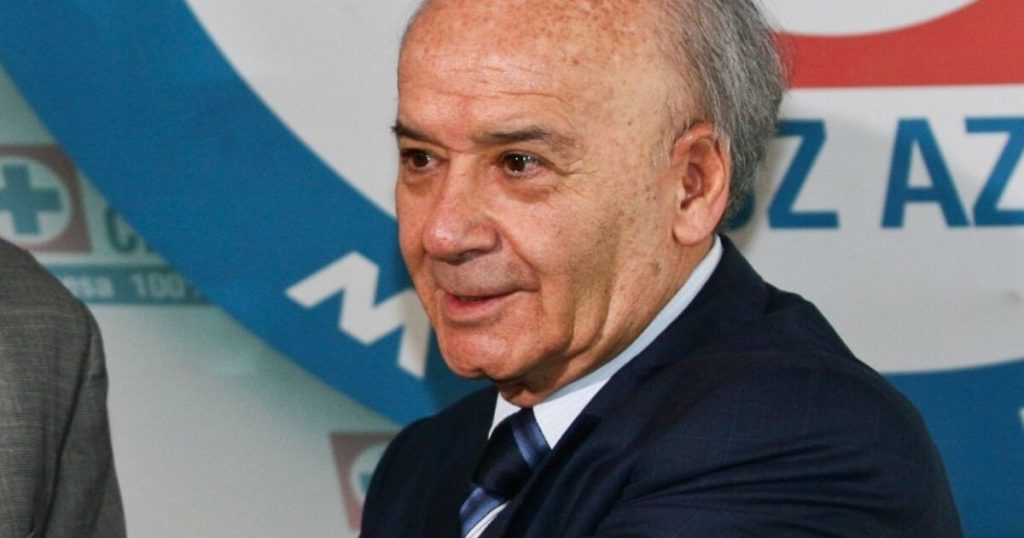
Havana/The Cuban Telecommunications Company (Etecsa) is trapped in a paradox. While it lacks foreign currency to invest in its deteriorating infrastructure, the monopoly has been fined for not using its entire budget in Cuban pesos assigned by the State for 2024. The national currency abounds in its coffers but is not used to buy antennas, cables or fuel.
“The fine fell on us because when last year’s accounts were reported, millions of pesos had been left unused,” he tells 14ymedio Moisés, an Etecsa administrator at its headquarters in Old Havana, with his name changed for this report. “The problem is that there was no way to use them, because with that you can’t buy anything you need to make repairs or new installations.”
Etecsa’s accounting department had already warned management that “there was a surplus and there would not be time to spend it before the end of December,” adds the worker. “But there was no way to do anything with those millions of pesos, because no foreign company based in Cuba wants to accept them to buy devices or pay for services. It is money that is very difficult to get rid of.”
“The solution they found to get rid of that money was to distribute it, as profits, among some of the employees”
“So we received the fine and at that time the managers ran,” says Jorge. “The solution they found to get rid of that money was to distribute it, as profits, among some of the employees. That is, get out of the national currency not through investments but through salary incentives.” To prevent the situation from being repeated in 2025, Etecsa is preparing new payment methods for its services to collect the greatest amount of foreign currency it can.
“Several scenarios have been evaluated and so far the one that seems to be implemented is to limit the number of recharges that the same client can make in national currency; from a certain amount or monthly amount it will be necessary to purchase the telephone fund in dollars” clarifies the administrator. “Along with the modality that we already have for recharges from abroad, purchases will be enabled in national territory, directly in dollars or with a Classic card.”
“What happens now that a mobile phone customer sometimes has thousands of pesos in balance and can buy as many navigation packages as they want, even making transfers of that money so that others can also buy their connection package, is going to remain more limited, because with that Cuban money Etecsa can hardly do anything, it is a dead fund for investments and the purchase of infrastructure.”
“We are right now restructuring everything and that is one of the reasons why we are getting fewer monthly recharge offers with a bonus, because there are many customers for whom a relative buys the recharge from abroad, which includes balance and recharge package , but then they resell the balance amount to others who pay them in Cuban pesos and they in turn buy new navigation packages. We even know that many relatives send them the dollars here, they exchange them on the black market and they buy the packages. in national currency. “Etecsa does not earn foreign currency, it cannot continue like this because this is a telecommunications company and has to earn hard money.”
“Etecsa does not earn foreign currency, it cannot continue like this because this is a telecommunications company and has to earn hard money”
Etecsa has not updated the exchange rate between currencies and the Cuban peso – as the state exchange houses did almost three years ago – and is still governed by the obsolete one of 1 dollar for 24 pesos. “For example, making a standard recharge from the United States costs the emigrant between 20 and 23 dollars and what their relatives in Cuba receive is about 500 pesos of fixed balance, plus the bonuses promoted by Etecsa at that time,” explains Jorge.
“But that same amount of money paid in Cuba to a telecommunications agent or in an office is now equivalent to about 6,000 pesos, enough to obtain up to 12 packages of 500 pesos each with which to buy everything from time to call to gigabytes of navigation. This distortion cannot continue, no telephone company in the world can balance the accounts with these contradictions between the currency in which it charges and the one it really needs.
The sudden increase in money in employees’ accounts, due to the hasty settlement of last year’s budget, has also not brought much joy among workers who have encountered a new problem.
“A good part of the money they gave me I have to pay in taxes on personal income,” explains Tatiana, an employee, also in the administrative area of Etecsa, but from the Playa municipality in Havana. In addition to paying taxes on the salary, you must also pay taxes on the profits and stimulation funds that state workers receive.
“People are upset because they know that this is not an award, nor something they gave us in recognition of so much sacrifice, but rather a last-minute trick,” laments the woman. “On the one hand they have given us that money and on the other the working conditions are getting worse. At this time of year we are saved because the temperatures have dropped, but in my office we have to bring our own fan to cool off because we cannot turn on the air conditioning.”
“There are no landline telephone devices to replace, we lack the boxes to install inside the homes, the cable supply is also having many problems”
Etecsa’s financial limitations are not only felt in the work environment. In October 2022, this newspaper collected the testimonies of several workers who denounced the lack of resources to undertake basic repairs in the fixed telephone network or replace the batteries of the telecommunications towers that, most of them obsolete, stop providing service when an outage occurs. electricity affected the area where they are located.
“We are tying together pieces of cables to be able to solve the breaks,” José Ángel then explaineda worker for the state monopoly and who considered that the company was then going through “the worst crisis since its creation.” The list of what was missing was long and has continued to grow over the years: “There are no landline telephone devices to replace, we are missing boxes to install inside the homes, the supply of cables is also having many problems and “We even have mobility affected by lack of fuel.”
Most of the foreign currency they receive from recharges from abroad is not invested in telecommunications infrastructure. “About 90% of what Etecsa collects comes from the company in a large item with an ‘undefined’ concept,” he told 14ymedio another employee linked to the accounting area and who preferred to remain anonymous. “With the rest of what is left, it is very difficult to maintain quality service because you can barely make large investments.”
The lack of liquidity has been taking its toll on Etecsa for years with its foreign investors. In 2022, for the first time in 15 years, the company could not meet its financial commitment to Nokia, the Finnish company that has worked on the Island in part of the implementation of the data service for mobile telephony.
For the 2025 budget, the Minister of Finance and Prices, Vladimir Regueiro Alehas warned that a “special tax on telecommunications services” will be implemented. According to the owner, “this will generate a tax in addition to the billings that the Cuban Telecommunications Company has made in more than 13,000 million pesos”, a sea of national currency for coffers thirsty for dollars.













